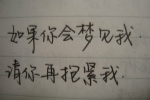
高二英语作文模板句型【一】
1。 It is considered /thought that人们(有人,大家)认为
2。 It is generally /usually accepted /agreed/recognized that普遍(一般,通常)认为
3。 It is believed that有人(人们,大家)相信
4。 It is well—known that大家知道(众所周知)
5。 It is said that据说(有人说)
6。 It is learned that据闻(悉)
7。 It is supposed that据推测
8。 It is estimated/predicted/calculated that据估计(预计)
9。 It must be pointed that必须指出
10。 It is reported that据报道
11。 It must be admitted that必须承认
12。 It will be seen that可见(可以看出)
13。 It will be seen from this that由此可见
14。 It is understood that不用说(都知道)
15。 It can not be denied that无可否认
16。 It has been proved/demonstrated that已经证明
17。 It may be confirmed that可以肯定
18。 It may be safely said that可以有把握地说
19。 It is sometimes asked that人们有时会问
20。 It is expected that/hoped that人们希望
21。 When it comes to要说到,要谈及
高二英语作文模板句型【二】
1:Peoples views onvary from person to person. Some hold thatHowever, others believe that
2:People may have different opinions on
3:Attitudes towards vary from person to person.==Different people hold different attitudes towards
4:There are different opinions among people as to
高二英语作文模板句型【三】
It ______ ______ ______ the train will be late.
答案:is likely that
2. It is likely that the typhoon will sweep across the island.
The typhoon ______ ______ ______ ______ across the island.
答案:is likely to sweep
3. I think trying to stop the couple quarrelling will be of no use.
I think it's ______ ______ ______ to stop the couple quarrelling.
答案:no use trying
4. Every time I was in trouble, he had no hesitation in helping me.
Every time I was in trouble, he came to help me ______ ______.
答案:without hesitation
5. He never hesitates to help if I have any problem.
He always helps me ______ ______ if I have any problem.
答案:without hesitation
6. I crossed the street so as not to meet him, but he saw me and came running towards me.
I crossed the street to ______ ______ him, but he saw me and came running towards me.
答案:avoid seeing
7. It seems that the students in that class have all passed the qualified exam.
All of the students in that class ______ ______ ______ ______ the qualified exam.
答案:seem to have passed
8. It seems that the boys of the class are playing football on the playground.
The boys of the class ______ ______ ______ ______ football on the playground.
答案:seem to be playing
高二英语作文模板句型【四】
(一)改写一般疑问句:
(1)原句中有be动词的,将be动词提前,其他顺序不变。
例如:Thisisacat.变为Isthisacat?
(2)原句中有情态动词的(can/may/shall/would)将情态动词提前,其他顺序不变。例如:Hewouldlikeapie.变为Wouldhelikeapie?
(3)原句中是一般动词的,在句首加助动词do或dose(用于主语是第三人称动词单数的句子),其他顺序不变。例如:Iplaytheguitar.变为Doyouplaytheguitar.
(4)原句中的some变any。
注:以情态动词开头的一般疑问句,并且要求对方做肯定回答的`some不变。
(5)原句中的第一人称改为第二人称。例如:Iamanurse.变为Areyouanurse?
(6)以dose开头的一般疑问句,原来动词的第三人称单数形式要变回原形。例如:Hereadsastorybook.变为Dosehereadastorybook?
(二)改写否定句:
(1)原句中有be动词的,直接在be动词后面加not。例如:Itisadog.→It’snotadog./Itisn’tadog.
(2)原句中有情态动词的,直接在情态动词后加not。
例如:Iwouldlikeahotdog.→Iwouldnotlikeahotdog.
(3)原句中是一般动词的,在一般动词前加don’t或doesn’t(用于主语是第三人称单数的句子),doesn’t后面用原型。例如:Iseethreehamburgers.→Idon’tseethreehamburgers.
原句中的some变any例如:Ihavesomebreadan
dmilk.→Idon’thaveanybreadandmilk.
(4)以let开头的祈使句,如果是letus或letme,直接在其后加not;如果let后面其他人称代词宾格(you、him、her、them、it)就在let后面加助动词don’t。例如:Letusgotothepark.→Letusnotgotothepark.再如:Letthemdohomework.→Don’tletthemdohomework.
(三)对划线部分提问:
对划线部分提问,就是先把一个陈述句的划线部分去掉,然后变为一个特殊疑问句:一是特殊疑问句+一般疑问句;
二是特殊疑问句+陈述句(对主语或主语的定语提问,therebe结构除外)
⑴划线部分是人,用who提问。
⑴划线部分是主语,用who提问,who后面的动词要用第三人称单数形式。如:Whois;Wholikes;Whohas?
方法:who+原句的剩余部分
例如:①HelenandMikearelisteningtomusic.
→Whoislisteningtomusic?
②Ihavesomemodelplanes.
→Whohasanymodelplanes?
⑵划线部分是表语,用who提问。
方法:Who+剩余部分的一般疑问句形式
⑵划线部分是事或者物,用what提问。
方法:what+剩余部分的一般疑问句形式。
注:如果原句是therebe句型,直接用What’s+地点状语来提问。例如:①Wewouldliketobuysomethingsforaparty.
→Whatwouldyouliketobuyforaparty?
②Therearealotofcakesintheplate.
→Whatisintheplate?
⑶划线部分是物主代词或名词所有格,用Whose提问。
方法:⑴划线部分是主语的定语时,Whose+剩余部分
例如:Ourclassroomisbright.
→Whoseclassroomisbright?
⑵划线部分是表语或表语的定语时,Whose+剩余部分的一般疑问句形式例如:①ThewomanisSuYang’steacher.
→Whoseteacheristhewoman?
注:对某部分的定语提问,被修饰的部分跟随特殊疑问句往前提②ThispurseisYangLing’s.
→Whosepurseisthis?
⑷划线部分是地点,用where提问。
方法:where+剩余部分的一般疑问句形式
例如:TheyarehamingaMathslessonintheclassroom..
→WherearetheyhavingaMathslesson?
⑸划线部分是“多少”,用howmany或howmuch提问。
方法:⑴句中是可数名词的用Howmany+剩余部分的一般疑问句形式例如:Therearefifteentreesintheplayground.
→Howmanytreesarethereintheplayground?
⑵句中是不可数名词的用Howmuch+剩余部分的一般疑问句形式例如:Ihaveaglassofjuiceforbreakfast.
→Howmuchjuicedoyouhaveforbreakfast?
⑹划线部分是时间,用when或whattime(具体的几时几分)提问。方法:⑴when+剩余部分的一般疑问句形式
例如:SuYangandSuHaiareathomeonSundaymorning.
→WhenareSuYangandSuHaiathome?
⑵问具体的时间直接用Whattimeisit?或What’sthetime?问
例如:It’sthreeforty-five.
→Whattimeisit?或What’sthetime?
高二英语作文模板句型【五】
您好!
您知道吗?每当我走过语音室时,总会透过明净的玻璃窗去看看里面的设备,语音室里的一切对于我来说都是那么新奇,那么吸引人。跟着您,在高科技设备装配的语音室里学英语,是我当时最大的愿望。可是,自语音室建好以来,您从未带同学们进去参观过,更没带同学们进去上过一节课,这使得我的愿望变得那样渺茫。
王老师,记得您每次在我们教室里上课时,起码有三分之一的同学在小声说笑,因此,教室里总是乱哄哄的`,可您却很少制止。王老师,维持课堂秩序是您的职责呀,您为什么不去制止他们?还有,您每次提问学生时,一旦同学回答不上来,您总会露出一副不耐烦的神情,为此,许多同学感到很伤心,好多同学也不喜欢上您的课。
王老师,学校培育了我五年,我希望学校越办越好,希望老师能教得开心,我们也能学得开心。因此,我诚心诚意地给您提几条建议,希望您能采纳。
一、每周带同学们到语音室上一次英语课。
二、您不要不管那些上课小声说笑的同学。作为一名教师,您有责任对他们进行批评和教育。
三、今后,请您对那些回答不上问题的同学多一些宽容和理解,并耐心地讲解,这些同学会非常感激您的,他们也会越来越喜欢您的。
王老师,如果您能采纳我的建议,我将十分开心。我坚信您一定会成为我们心中的好老师!
祝您工作顺利!
您的学生:张辉君
3月26日
高二英语作文模板句型【六】
Therearesomecherriesinthebasket.(一般疑问句,否定回答划线部分提问Kittylikesthebluedress.(用thepinkdress改为选择疑问句Don`tplaywithfires.(换一种说法
Joelikesreading.Dannylikesreadingtoo.(把两句连成一句Pleaseeatsomecakesandbiscuits.(改为否定句划线部分提问Thereissomewaterintheglass.(划线部分提问划线部分提问Whatdayistoday?
What`sthedatetoday?
Whatdoyouusuallydoafterdinner?
Whichpearsdoyouwant,thegreenonesortheyellownoes?Whichwesternholidaydoyoulikebest?Whenisit?
WhatdoyoudoattheLanternFestival?
5B2
Thosebooksareours.(同义句划线部分提问划线部分提问
ThosecrayonsareDanny`s.(.(用Alice改为选择疑问句Arethesetheirschoolbags?(单数句划线部分提问
Theyridetheirbicyclestothepark.(用May改写
Thecocooniswhite.(用browng改为选择问句划线部分提问Heisfouryearsold.(改为一般过去时
Iwasathomeyesterdayevening.(改为一般疑问句
Thecaterpillarslikeeatingleaves.(改为单数句划线部分提问划线部分提问
WhatdoyoueatattheMid-autumnFestival?(根据实际情况回答
高二英语作文模板句型【七】
考辅P42
1.IgaveTomthebook.//
2.Heboughthismothersomeflowers.//
3.Thebridgewasbuiltbyworkerslastyear.//
4.Wehavetofinishtheworktoday.//5.Hewilldohishomeworktomorrow.//
6.Wecleantheroomseveryday.//7.Thewriterspent3yearsonthebook.//
8.Itisabookwithalotofbeautifulpictures.//
9.Thebooksoldverywellduringthefirstweek.//firstweek.
10.Marywastheonlyoneintheoffice.//
11.Shefinishedherworkat10o’clock.//Shedidn’12.Shehadtotakeataxihomebecauseitwastoolate.
13.LizaandMikearrivedattheGreatWallintwohours.
14.Theywerehappytogettothetop.//
15.TheyenjoyedthemselvesontheGreatWall.//
16.ThepostmansentSusanandTommyapaperbox.
17.Theyopeneditandfoundapresentfromtheirfriend.
18.Theybothlikedthepresentandfeltveryhappy.
19.Alicedidn’tfeelwelltoday,soshewenttothehospital.
20.Thedoctoraskedhersomequestions.//
21.Thedoctordidn’tgiveheranymedicineintheend.
(全真1)
1.ThecapitalAirporthasbeeninusefor20years.//
2.ThecapitalAirportisthelargestoneinChina.//
3.Ihavenevertakenaplane.MyfriendLiPing,either.//
(全真2)
1.Fathergave$20formetobuysomebooks.//
2.IwasexcitedwhenIsawsomanygoodbooksinthebookstore.
3.ButsomebookswouldcostmorethanIhave.//
ButIdidn’//(全真3)
1.ManyChinesefriendswenttotheparty.2.Tonywasgivenalotofpresentsbyhisfriends.//Tony’
3.SeeinghisChineseteacheratthepartymadeTonyveryhappy.//(全真4)
1.Iwanttoeatsomething.//2.Therefrigeratorisempty.//3.Bobspentfifteenyuanonthehamburger.///(全真5)
1.Mr.Wangdoesn’tworkinthatfactoryanylonger.//
2.Mr.Wanglefthomeearlierinordertocatchthebus.3.Mr.Wangfindsitnoteasytogetalongwiththatyoungguy.//(专家1)
1.Manypeoplewentshoppingyesterday.
2.Janespent4hourstobuyNewyeargifts.//
3.Shewassotiredthatshecouldn’twalkanylonger.//
(专家2)
1.Myfriendssaidtome,“Areyoufree?”
2.Shewantedmetogoshoppingwithher.
3.Shethinksitapleasuretogoshoppingwithafriend.











